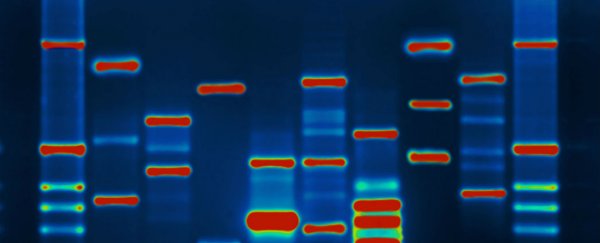The genetic coding system known as DNA (deoxyribonucleic acid) stores a huge amount of data about our biological make-up on double-helix molecules - and that's led scientists to wonder whether it could be rewritten with other types of data. In theory, it could replace the storage offered by today's hard drives and servers in a microscopic space.
Not only is that useful for the photos and music that we all store, but it could transform the way that larger companies such as Google and Facebook work. Many of the major innovations in technology today, from artificial intelligence to medical research, often rely on gigantic databases of 1s and 0s, and anything that makes these bytes easier to store is a potential game-changer.
A team led by ETH Zurich's Robert Grass has just presented a proof-of-concept demonstration of how DNA data storage could potentially work. The scientists were able to encode molecules with 83 kilobytes of text taken from the 1291 Swiss Federal Charter and the 10th century Method of Archimedes. That's roughly 40 times the amount of text in this article, so it's a promising start.
The coding language of nature is "very similar" to the computing coding language we've created for ourselves, Grass says in a press release, though there are some differences. DNA uses four chemical bases (A, T, C and G) to store data rather than two numbers (1 and 0) but both systems can expand to create combinations that store an infinite amount of data.
Grass says just a fraction of an ounce of DNA molecules could store around 300,000 TB of information - that's an impressive figure, considering the largest hard drives of today top out at around 16 TB (though you can of course string many hundreds together in servers and data centres). Another advantage is the longevity of DNA, which we know can remain intact for thousands of years.
Based on tests the scientists have carried out, specially treated data-holding DNA could potentially last for millions of years, so the knowledge of the past will always be available for future generations to rely on (and you'll never have to replace your hard drive).
As you might expect, there's a long, long way to go yet - the prototype DNA disk created by Grass and his team can't be searched like today's hard drives can, and the technology is also prohibitively expensive (storing just a few megabytes of data would cost thousands of dollars right now). However, researchers are hopeful that these obstacles aren't insurmountable, and that one day DNA can help revolutionise data storage techniques.
"[An] interest in preserving information is something we have lost, especially in a digital world," says Grass. "And that's what I'd like to help address and encourage people to do: Save information we have today for future times."
